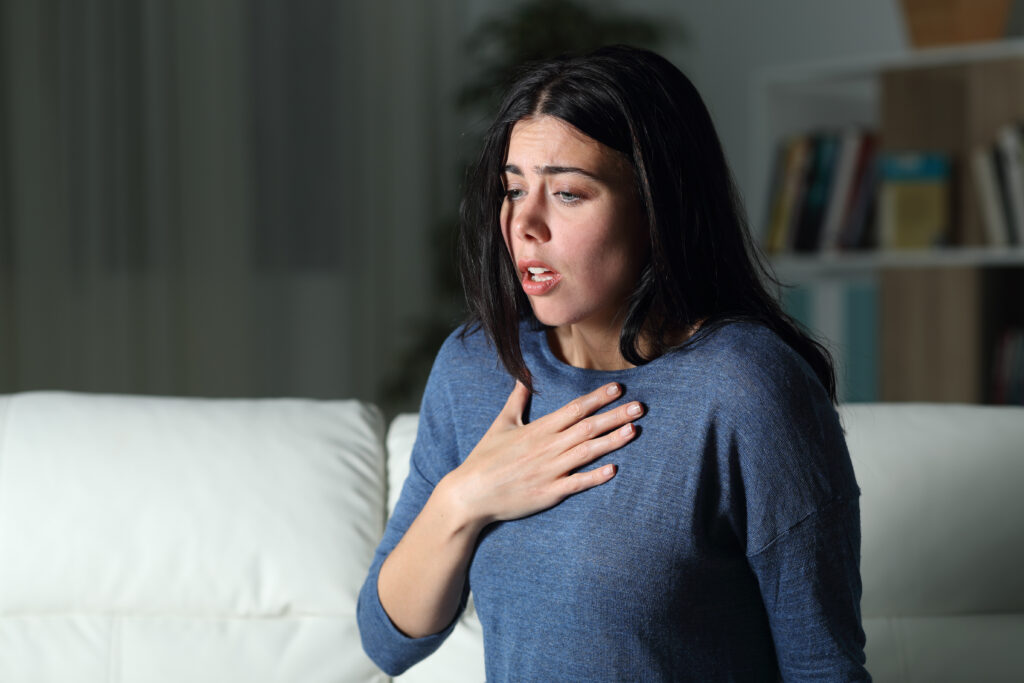Delray Beach Psychiatry is a mental health facility located in South Florida that’s staffed with board-certified psychiatrists, experienced therapists, and licensed clinical social workers (LCSW). Delray Beach Psychiatry specializes in treating a wide range of mental health conditions such as anxiety, depressive disorders, attention-deficit/hyperactivity disorder (ADHD), posttraumatic stress disorder (PTSD), schizophrenia, and obsessive-compulsive disorder to name a few.
At Delray Beach Psychiatry, we understand the complexity of life and the impact of various life events and circumstances on mental health. It’s not unusual for us to see a comorbidity of disorders as our clients work to navigate the turbulent seas of their emotional and psychological well-being. More often than not, there is no single factor that shapes the thoughts, behaviors, and perception of oneself. That doesn’t mean that all hope is lost, however. Under the guidance of an experienced mental health professional, clients can learn to better manage their symptoms and lead more fulfilling lives.
Delray Beach Psychiatry Can Help Improve Anxiety Disorders

Some of the common symptoms of anxiety disorders include feelings of nervousness and restlessness, a sense of panic, increased heart rate, hyperventilation, difficulty concentrating, and trouble sleeping. When left untreated, anxiety disorders can worsen over time and cause affected individuals to avoid situations that trigger their symptoms. This, in turn, can negatively impact academic and workplace performance, as well as interpersonal relationships.
Luckily for individuals living with an anxiety disorder, there are two main treatments available: psychotherapy and medications. It is highly recommended that treatment be a combination of the two for maximum benefits.
Psychotherapy is known by many names but is mostly known as talk therapy and psychological counselling. In either case, psychotherapy involves working with a therapist or licensed clinical social worker to identify potential reasons for anxiety symptoms and reducing those symptoms by developing healthier coping strategies. One highly effective therapy for treating anxiety is cognitive behavioral therapy.
Cognitive behavioral therapy or CBT is the most highly effective therapy for treating anxiety disorders. In contrast with many other forms of psychotherapy, CBT is a more short-term therapy that focuses on teaching individuals more effective strategies for better managing anxiety symptoms. These strategies help individuals struggling with anxiety to gradually engage with triggering activities or situations that were previously avoided. The latter is treated with what is known as exposure therapy, which gradually, but carefully exposes the individual to the activity or situation that triggers anxiety symptoms. This helps the individual build confidence in those situations so that anxiety symptoms aren’t intensely triggered.
When it comes to medications, there are several that are used to help alleviate symptoms, depending on the type of anxiety disorder the individual and whether or not the disorder is existing in comorbidity with another mental health condition or a physical illness. Case in point: antidepressants are often prescribed to individuals experiencing both anxiety and depressive disorders. In very specific circumstances, a psychiatrist may prescribe sedatives like benzodiazepines as short-term relief for anxiety symptoms.
Delray Beach Psychiatry Can Help Improve Depressive Disorders

Depressive disorders are characterized by thoughts and feelings that negatively impact a person’s emotions and behavior. If left untreated, depression symptoms can make it difficult for an individual to perform well at school and/or work, and can even impair function at home. Common symptoms of depression include persistent feelings of sadness, worthlessness, and guilt. Symptoms also include loss of interest in pleasurable activities (anhedonia), changes in appetite, weight fluctuations, disrupted sleep, loss of energy, difficulty concentrating and making decisions, and suicide ideation.
Like with anxiety disorders, various treatments are used to effectively treat depression. In fact, there are three treatments for depression that are commonly employed: medication, psychotherapy, and neuromodulation. The latter entails stimulating the brain’s neural pathways using electrical or magnetic. Electroconvulsive therapy (ECT), transcranial magnetic stimulation (TMS), and vagus-nerve stimulation (VNS) are all examples of neuromodulation therapy. A more experimental version of this type of therapy is deep-brain stimulation (DBS).
Delray Beach Psychiatry Can Help Improve ADHD

Treatment for ADHD is going to differ between adults and children, but in the case of children, a combination of medication, behavior therapy, and parenting tactics are employed. For children, two types of highly effective medication are prescribed for treating ADHD: stimulants and non-stimulants.
The two types of stimulant medications prescribed for treating ADHD are methylphenidate and amphetamines. For children who do not respond well to stimulant medications, or parents who prefer an alternative to stimulant medications, non-stimulants are prescribed as an alternative. The two types of non-stimulant medications prescribed to children are atomoxetine and guanfacine, which are just as effective at treating ADHD symptoms.
How well children respond to the medication depends on the child. Some children respond well to medication and experience significant relief from their ADHD symptoms. Other children may only experience partial relief from their ADHD symptoms or may not respond to the medication at all. In some cases, the medication worked in the beginning but ceased to be effective over a period of time. In these situations, the dosage may be adjusted to improve the medication’s effectiveness, or the medication may be changed completely.
In addition to medication, behavior therapy is also employed as part of the treatment plan for ADHD. For children with ADHD, this entails teaching parents and school teachers more effective strategies for providing positive feedback for desired behaviors. This also entails employing more effective consequences for negative behaviors. When working with children, careful coordination is needed for the behavior therapy to work. Long term, it will help children learn more effective ways of making better decisions and controlling their behavior. In the case of adults with ADHD, a combination of behavior therapy and other psychotherapies will help improve organization and structure.
One last component for treating ADHD in children that cannot be overlooked is parenting strategies. Because children with ADHD benefit more from clear expectations and more structured routines, setting up and maintaining clear, routine schedules is one way to help them on this front. Instructions also need to be clear using simple words and through demonstration.
It’s also important to avoid multitasking when working with a child with ADHD in order to supervise them more efficiently. Lastly, it’s just as important to reward good behavior as part of teaching them to manage their ADHD symptoms better and to maintain good communication with the child’s teacher.
Delray Beach Psychiatry Can Help Improve Schizophrenia

While there’s no cure for schizophrenia, the good news is there’s still treatment available for managing the symptoms. With the right treatment, individuals living with schizophrenia experience significant improvement over their quality of life, with the likelihood of their recurring symptoms grealty diminished.
Though schizophrenia is a complex disorder in its own right, it should not be mistaken with dissociative identity disorder (DID), which was formerly known as having a split personality or multiple-personality disorder. It’s equally important to note that Most schizophrenia does not make a person more prone to violence or dangerous behavior than non-affected individuals in the general population.
Delray Beach Psychiatry Can Help Improve PTSD

One common symptom of PTSD is intense, disturbing thoughts and/or feelings associated with the experience of the traumatic event, even long after it happened. Individuals living with PTSD may even relive the traumatic event in the form of flashbacks or nightmares. Other symptoms associated with PTSD include feelings of sadness, anger and/or fear, detachment and estrangement. Individuals living with PTSD may also avoid people and/or situations that trigger their experience with the traumatic event, including ordinary objects and sounds like loud noises.
There is no one single treatment plan for PTSD as psychiatrists and other mental health professionals employ various research-proven methods to assist affected individuals with recovery. In general, however, a combination of psychotherapy with medication yield the best results in treating PTSD symptoms. Some examples of psychotherapy that are highly effective for treating PTSD symptoms include cognitive behavioral therapy, cognitive processing therapy, group therapy, and stress inoculation.
It’s important to note that while many of these treatments are recommended in the beginning, once a mental health professional has worked with a client long enough, new treatments that work best for the client can be suggested and implemented.
Delray Beach Psychiatry is a group of highly trained, licensed mental health professionals who specialize in treating anxiety, depression, ADHD, PTSD, schizophrenia and other mental health conditions. For more information about our areas of expertise, visit our areas of practice, or contact us for more details.

